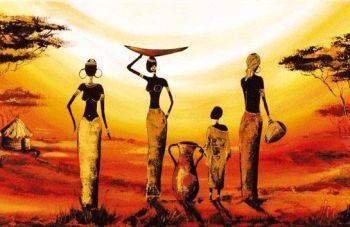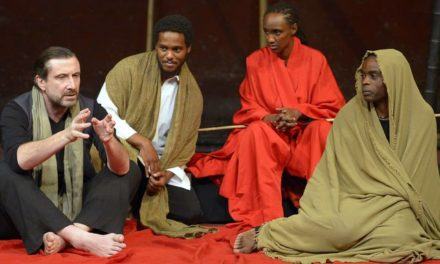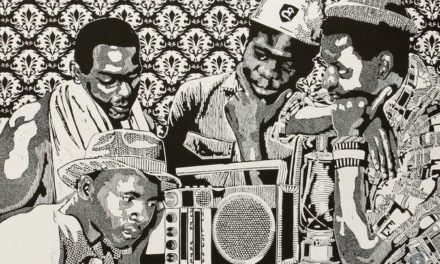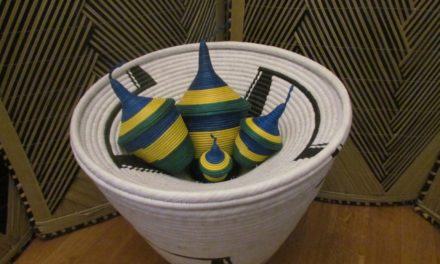
His paintings portray the beauty of Rwandan culture. (All photos by Sarine Arslanian)
Isakari Umuhire, 24, developed a passion for arts from early childhood, starting to play with pencils at nursery school. By the age six, he was already drawing portraits of people he admired.
His favourite pastime then was to imitate a portrait of his father that was hanging on the wall at home.
Moreover, during biology classes at school, teachers would always ask him to illustrate the lessons in drawings, which he did with a lot of enthusiasm.
With the support of his teachers, family and friends, Umuhire decided to specialise in arts by attending the Nyundo Arts School in Rubavu District. Keen on learning new skills, he then enrolled in a Bachelor of Industrial Art and Design at St. Lawrence University in Kampala, Uganda.

“My art is always evolving. I like to experience with different subject matters and change styles. I started with post-impressionism. Now, I see myself as a Rwandan contemporary artist,” says Umuhire.

What inspires him most, however, are traditional Rwandan landscapes inspired by local culture. Noticing that Rwanda is developing fast and that cultural values are changing along the way, Umuhire wishes to use his art as a reminder of where Rwandans come from.
Are we losing traditional values? What is our future? are questions that the artist often asks himself.
However, when asked to share his opinion, Umuhire preferred to remain silent confiding that it is only through his art that he can reveal his thoughts on such matters.
His artwork mainly revolves around issues in Rwandan society but also around the beauty of local culture and people.
Since 2014, the talented contemporary artist has been a member of Rwanda’s first community arts centre, Ivuka Arts Kigali. He has also joined the public arts social enterprise, ‘Kurema, Kureba, Kwiga.’
Together with the Kurema team, he has worked on a series of murals which address positive living and the stigma around HIV and AIDS.
“Kurema’s values and mine are very similar. We both want to take the arts to the next level,” says the artist before sadly mentioning that Rwandans in general are not that interested in the contemporary art scene yet.
“Instead of having the paintings stuck in galleries and studios that not many people visit, with Kurema’s support, we can bring our art to the public and raise awareness,” says Umuhire on a more positive note.
The talented contemporary artist dreams that one day, he will be able to witness the positive impact of his artwork, see it touch and inspire others. On a broader level, he wishes to see more art schools, studios and galleries opening their doors in Rwanda, as well as an art museum.

But, most importantly, he is eager to see a cultural shift in Rwandan society that would make locals come visit Ivuka Arts as much as foreigners do, if not more.
At the moment, a couple of contemporary artists from Ivuka Arts, Umuhire included, are working on organising a group exhibition around mid-November.
By: Sarine Arslanian
By: Sarine Arslanian
Posté le 10/04/2017 par rwandaises.com





